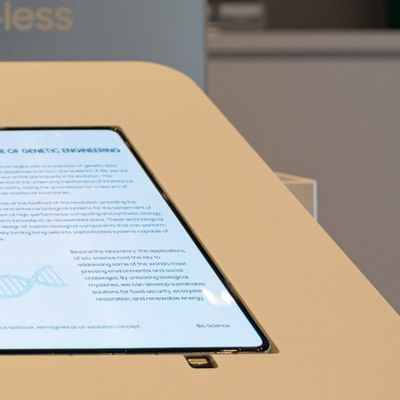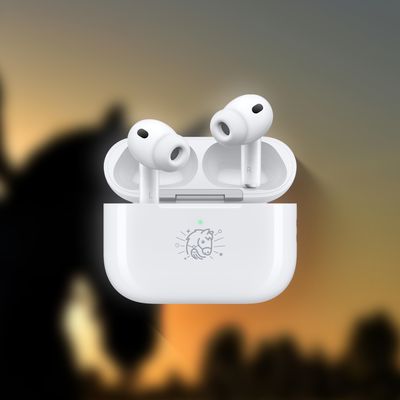Adobe CEO Responds to Steve Jobs' 'Thoughts on Flash'

The Wall Street Journal is currently conducting an exclusive interview with Adobe CEO Shantanu Narayen regarding an open letter posted earlier today by Apple CEO Steve Jobs sharing his thoughts on Adobe's Flash technology and reasons why Apple has not included support for it on iPhone OS devices. Video clips and the full interview will be available later, but the Journal is currently providing live updates of the interview in progress.
In his opening comments, Narayen noted that Adobe believes in "open content", stressing that its Creative Suite software is designed to work on a number of different platforms and that the company remains committed to its vision that its software should be able to help people work across multiple operating systems. Narayen also noted that Adobe products, presumably referring to Flash, will be fully supported on the next version of the Android smartphone operating system, as confirmed by Google vice president Andy Rubin earlier this week.
In addressing Jobs' claims of technology issues with Flash, Narayen called the comments "really a smokescreen" and pointed to over 100 App Store applications created using Flash. Further countering Jobs' assertions, Narayen blamed Apple's operating systems for Flash-related crashes and called Jobs' claims of Flash hampering battery life on mobile devices "patently false". In general, Narayen also claimed that Flash issues highlighted in Jobs' letter are rooted in Apple's proprietary nature that prevents Adobe from innovating as they'd like.
Narayen again returned to his claim that Flash is an open standard, calling Jobs' claim of it being closed "amusing". Adobe's view of the world is multi-platform, allowing it to provide developers with tools to easily deploy their content across many devices and platforms, a concept that may not to Apple's benefit in trying to lock customers in to its ecosystem.
In conclusion, Narayen noted that customers have the ultimate voice in the dispute, and he believes that multi-platform solutions like Adobe's will win out.
Popular Stories
Apple is not expected to release a standard iPhone 18 model this year, according to a growing number of reports that suggest the company is planning a significant change to its long-standing annual iPhone launch cycle.
Despite the immense success of the iPhone 17 in 2025, the iPhone 18 is not expected to arrive until the spring of 2027, leaving the iPhone 17 in the lineup as the latest...
Language learning app Duolingo has apparently been using the iPhone's Live Activity feature to display ads on the Lock Screen and the Dynamic Island, which violates Apple's design guidelines.
According to multiple reports on Reddit, the Duolingo app has been displaying an ad for a "Super offer," which is Duolingo's paid subscription option.
Apple's guidelines for Live Activity state that...
Apple is planning to release a low-cost MacBook in 2026, which will apparently compete with more affordable Chromebooks and Windows PCs. Apple's most affordable Mac right now is the $999 MacBook Air, and the upcoming low-cost MacBook is expected to be cheaper. Here's what we know about the low-cost MacBook so far.
Size
Rumors suggest the low-cost MacBook will have a display that's around 13 ...
CES 2026 has just provided a first glimpse of the folding display technology that Apple is expected to use in its upcoming foldable iPhone. At the event, Samsung Display briefly showcased its new crease-less foldable OLED panel beside a Galaxy Z Fold 7, and according to SamMobile, which saw the test booth before it was abruptly removed, the new panel "has no crease at all" in comparison.
The ...
Govee today introduced three new HomeKit-compatible lighting products, including the Govee Floor Lamp 3, the Govee Ceiling Light Ultra, and the Govee Sky Ceiling Light.
The Govee Floor Lamp 3 is the successor to the Floor Lamp 2, and it offers Matter integration with the option to connect to HomeKit. The Floor Lamp 3 offers an upgraded LuminBlend+ lighting system that can reproduce 281...
Now that the calendar has flipped over into January, steep discounts on popular Apple products have become more rare after the holidays. However, if you didn't get a new pair of AirPods recently and are looking for a model on sale, Amazon does have a few solid second-best prices this week.
Note: MacRumors is an affiliate partner with some of these vendors. When you click a link and make a...
Belkin today announced a range of new charging and connectivity accessories at CES 2026, expanding its portfolio of products aimed at Apple device users.
UltraCharge Pro Power Bank 10K with Magnetic Ring
The lineup includes new Qi2 and Qi2.2 wireless chargers, magnetic power banks, a high-capacity laptop battery, and USB-C productivity accessories, with an emphasis on higher charging...
Apple has designed a limited edition version of the AirPods Pro 3 to celebrate Lunar New Year, and customers in select countries can purchase them starting today. The Year of the Horse Special Edition AirPods Pro 3 feature a unique horse emoji character that's otherwise unavailable.
Customers in China, Hong Kong, Taiwan, Malaysia, and Singapore are able to buy the AirPods, and they'll be...
























